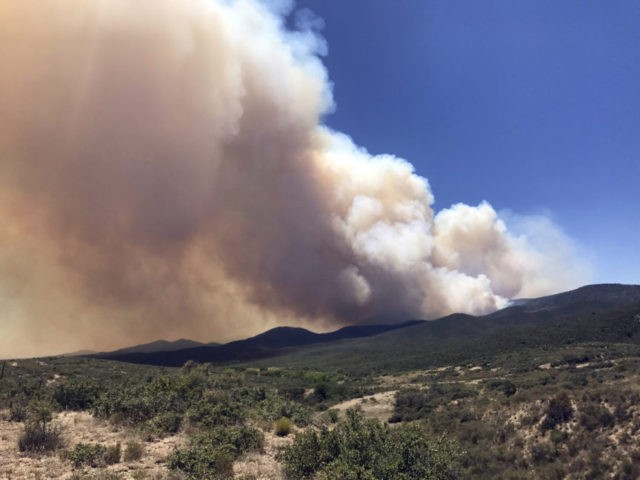A lawsuit against California’s controversial “fire prevention fee” (a.k.a. “fire tax”) will continue, despite being suspended earlier this month as part of a deal Republican leaders made to pass cap-and-trade.
The tax was levied on almost 800,000 rural property owners in mostly Republican districts. The plaintiffs are continuing with their lawsuit and may seek to have the tax refunded in full.
The Los Angeles Times reports:
The class-action lawsuit [filed by the Howard Jarvis Taxpayer Association] has survived several challenges, and a trial court decision could be reached in early fall, [according to] Jon Coupal, president of the taxpayer group.
The group will continue to pursue the lawsuit despite Monday’s vote.
“It’s a suspension [of the fee], not a repeal, and what government can give it can take away,” Coupal said, adding that the fire fee could be restored with a simple majority vote. “We are concerned it may be temporary. There has been a litany of broken promises and broken deals by the Democrat majority, and this is what has us so concerned.”
If the taxpayer group prevails, the courts could order the state to repay the entire $470 million it has collected from property owners during the last six years.
Republican legislators are divided over the impact of the deal struck last week, when eight Republicans, dubbed the “Swamp 8” by conservative pundits and talk radio hosts, voted in favor of Gov. Jerry Brown’s massive extension of California’s cap-and-Trade program.
Predictably, supporters of the bill — which the Legislative Analyst Office (LAO) predicts could push gasoline prices .63 to .73 higher are trying to spin the deal as a net tax cut and “a huge victory” for Californians.
But State Senator Ted Gaines (R-El Dorado Hills), the leading legislative critic of the “Fire Tax,” disagrees. “I view it as a bait and switch,” Gaines told the Times. “People may think that with the moratorium on the fire tax that it is a good thing, but you’ve got to weigh that against the cap-and-trade impact on gasoline and energy in California.”
The group suing the state over the “fire tax” has been encouraged by property owners forced to pay what they allege is an “illegal tax.”
If the courts agree, that could force the state to refund almost $500 million dollars collected since 2011 — much of which went to fund existing programs, not the new “fire prevention” efforts promised.
John Coupal of the Howard Jarvis Taxpayers Association estimates that the net effect of the passage of the cap-and Trade expansion, including the suspension of the rural “fire tax” will cost the average California driver more than $400 in higher gas prices.
“It’s not even close,” Coupal said. “The financial hit that middle-class Californians will take as a result of this legislation is going to be enormous.”
Tim Donnelly is a former California State Assemblyman and Author, currently on a book tour for his new book: Patriot Not Politician: Win or Go Homeless. He also ran for governor in 2014.

COMMENTS
Please let us know if you're having issues with commenting.